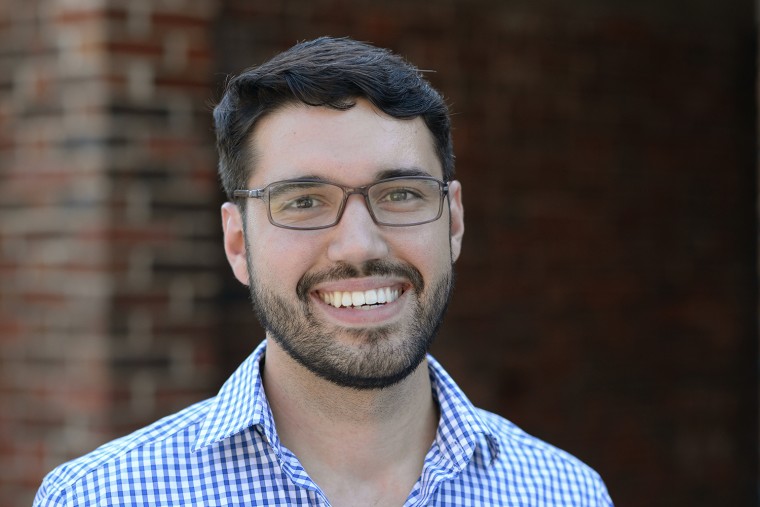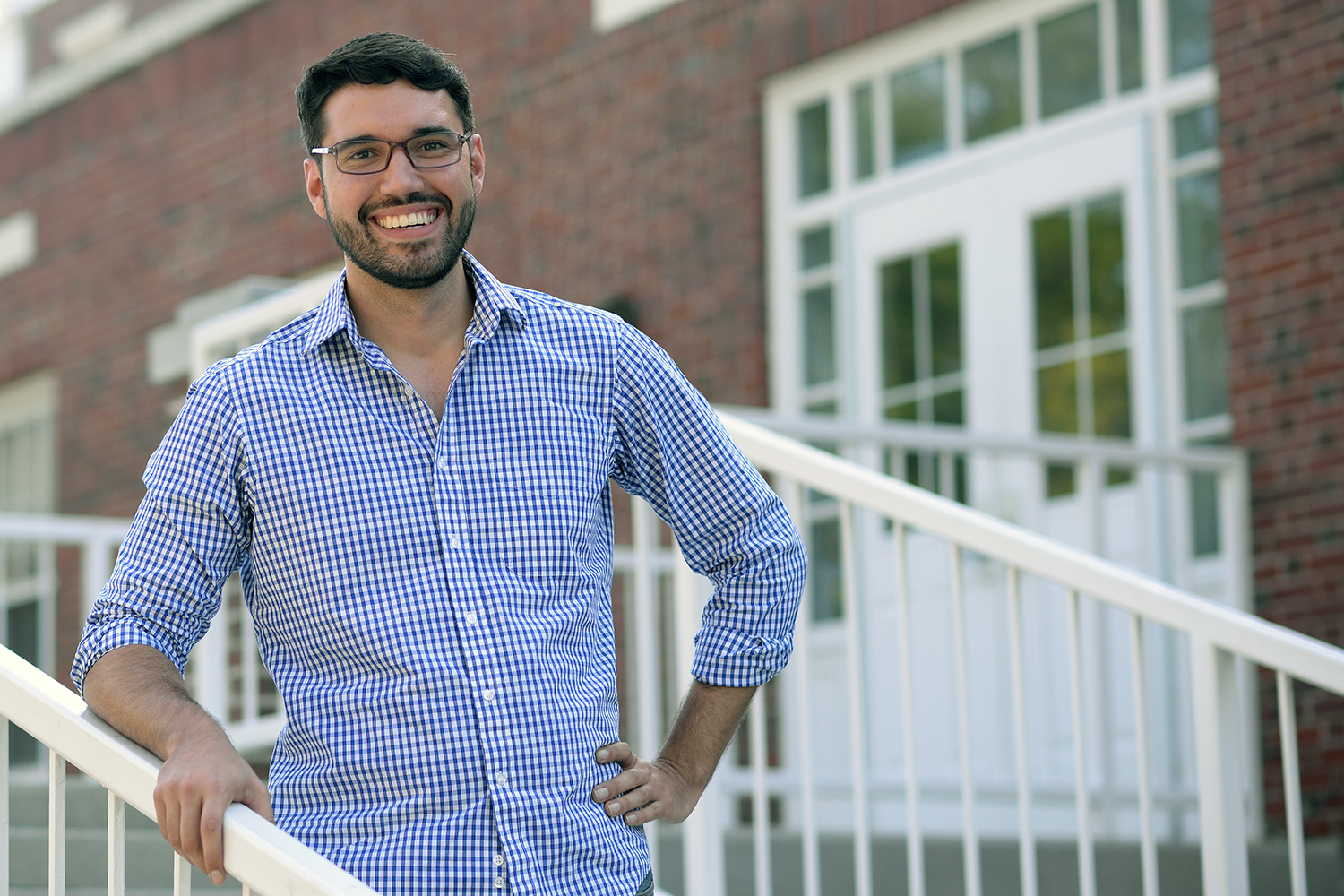Velez Studies Political Psychology, Racial and Ethnic Politics


In this News @ Wesleyan story, we speak with Yamil Velez, a new member of Wesleyan’s Government Department.
Q: Welcome to Wesleyan! Please tell us about your background—where did you grow up, go to school, etc?
A: I grew up in Miami, Florida as the only son of two immigrant parents. My parents divorced at an early age and since my mother had to work and go to school to support us, I spent a lot of time with my grandparents. It was my grandmother who instilled a passion for politics in me, as I would spend every afternoon listening to talk radio and discussing contemporary politics with her. When it was time to go to college, I opted for a university in the capital of Florida with a great political science department – Florida State University – and there I began my journey as a political scientist. Political science appealed to me because it reminded me of the long conversations I would have with my grandmother about local and global politics, and I was excited to contribute to the discussion.
Q: As an undergrad, you double majored in political science and psychology. How did this inform your graduate work and scholarly interests today?
A: I appreciated political science for its focus on understanding how different political actors interact and its emphasis on institutions. However, I always felt like these courses did not place enough importance on the individual so I sought out psychology as a double major. I took a political psychology course in the spring of my junior year. After that semester, I decided to go to graduate school. My professor in that class strongly recommended that I go to Stony Brook because at the time, it was the only program that specialized in political psychology, a sub-discipline that united my two fields of study. I was ecstatic once I found out I was admitted and I am glad I went there. It was such an interesting department with the most fascinating people. I still remember my first prospective students meeting with the head of the department, Milton Lodge. He described how some of his recent work had found that exposure to judicial symbols led people to accept the legitimacy of judicial decisions, irrespective of their beliefs about the decision. I responded, “Wow,” and Milton Lodge snappily said, “Wow is right.” This was a place where conventional thinking in the discipline was constantly challenged and I believe my research reflects the Stony Brook spirit.
Q: What attracted you to Wesleyan’s Government Department?
A: Wesleyan University has a reputation for producing people who go out into the world and make a difference. Along with having excellent colleagues who study important topics in America and abroad, I wanted to be a part of a department where I could teach highly engaged students.
Q: What courses are you teaching this year? Are there other courses you hope to teach in the future?
A: This year I am teaching two courses: Racial and Ethnic Politics and Place and Politics. In the future, I hope to teach courses on immigration politics, gentrification, political psychology, and experimental methods.
Q: How would you describe your teaching style?
A: I consider my teaching style to be highly interactive. I like students to participate and confront the material through debate and discussion.
Q: It’s obviously an exciting time in American politics with the 2016 presidential race heating up. Will you be bringing current events into your curriculums, and how?
A: Since both of my classes focus on race and ethnicity in the United States, it is difficult not to include discussions about current events. Almost every topic we will be covering in both of my classes is in the news on a regular basis, which speaks to the importance of race and ethnicity in our time.
Q: Who or what are you watching closely this election season?
A: I am watching whether candidates on either side of the aisle will competently address immigration, police-community relations, and inequality.
Q: You’ve published papers in the past about factors influencing voters’ attitudes and behaviors. Please tell us about these.
A: My research focuses on how local racial and ethnic composition shapes citizens’ perceptions and attitudes of out-groups. I find that local influxes of immigrants cause people who value conformity and diversity to polarize on the issue of immigration. I also find that citizens accurately perceive these local increases in immigration and are more sensitive to changes in local immigrant composition than existing levels.
Q: What are you researching currently? How did you become interested in this topic?
A: I am currently working on a book project that examines when native-born residents of ethnically diversifying communities will engage in local politics to fight off immigration and when they will move out of those communities. This project is meant to speak to literatures in sociology, political science, and economics that study immigration but have not integrated each other’s insights. I have always been interested in the topic, but the current salience of immigration in national politics has motivated me to think deeply about the topic.
Q: What do you like to do for fun?
A: Music is one of my biggest passions. I have played in multiple bands, produced a handful of albums, and still compose music whenever I get a chance.

